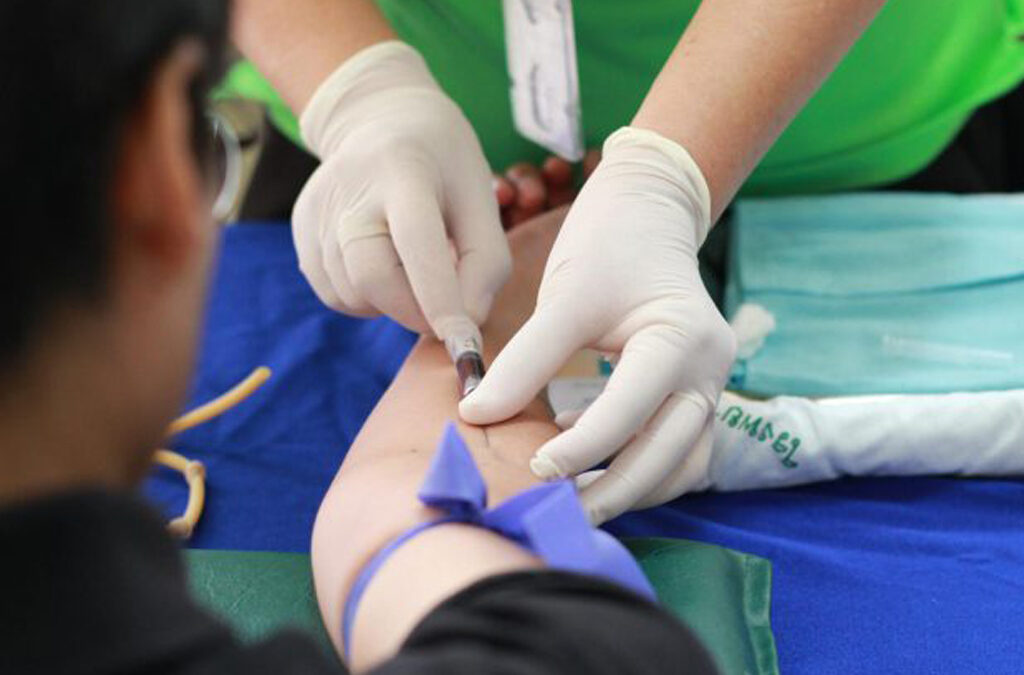
How Strong Is a Chimpanzee? Are Chimps Really That Violent?
October 8, 2025
How to Prepare and Plan for a Safari to Murchison Falls National Park
October 8, 2025Yellow Fever Vaccination Requirements in Rwanda, Uganda, and Congo

Traveling to Africa demands careful attention to health precautions. With 54 countries spanning diverse climates and ecosystems, many regions support the growth of bacteria, viruses, and disease-carrying insects. Travelers may encounter illnesses such as Ebola, polio, Zika virus, measles, hepatitis A and B, typhoid, rabies, cholera, chickenpox, and tetanus. Although most countries are prepared to handle outbreaks, mosquito-borne diseases, particularly malaria and yellow fever, present the greatest risk.
Before traveling, consult a healthcare provider to review your travel plans and understand the vaccination requirements for each country. This guide focuses specifically on yellow fever vaccination requirements for travelers visiting Uganda, Rwanda, and the Democratic Republic of Congo (DRC).
Understanding Yellow Fever
Yellow fever is a viral disease transmitted by mosquitoes of the Aedes and Haemagogus species, which thrive both in urban areas and forested regions. Unlike malaria, which can be treated with medication, yellow fever has no cure and can only be prevented through vaccination.
The disease exists in three forms. Jungle, or sylvatic yellow fever, spreads through mosquitoes in forests and wilderness areas that feed on primates but can also infect humans who enter forested regions, such as Maramagambo Forest in Uganda. Intermediate yellow fever occurs when mosquitoes that live both indoors and outdoors transmit the virus, which can affect travelers even in lodges or homes. Urban yellow fever, the most dangerous form, spreads rapidly when infected individuals enter cities where local mosquitoes transmit the virus. Outbreaks in urban areas are especially severe in locations with stagnant water that supports mosquito breeding.
Symptoms typically appear within three to six days after being bitten. Early signs include muscle pain, nausea, vomiting, fever, shivering, loss of appetite, and abdominal pain. Severe cases may involve bleeding from the eyes, mouth, or nose, organ failure, and even death within 10 to 14 days. Because these symptoms can resemble malaria or typhoid, a proper medical examination is necessary for diagnosis.
Prevention and Vaccination
Since no treatment exists for yellow fever, prevention is essential. Vaccination is highly effective and should be administered at least 10 days before traveling to areas at risk. Vaccines are available only at WHO-approved health facilities, which provide the official yellow fever vaccination certificate.
Additional precautions include sleeping under mosquito nets and applying insect repellent to reduce the risk of mosquito bites.
The Yellow Fever Vaccination Certificate
Many African countries require travelers to present proof of yellow fever vaccination to prevent the virus from spreading. Immigration and border officials may request the certificate, particularly from travelers arriving from yellow fever endemic countries.
All travelers from endemic countries must carry the vaccination card. Some countries also require travelers from non-endemic regions to present proof of vaccination. Exemptions exist for infants under nine months, pregnant women, individuals with severe egg allergies, or those with serious immunodeficiency. Medical exemptions must be documented by a doctor on the official form or directly on the yellow fever card.
Country-Specific Requirements
Rwanda does not require travelers from non-endemic countries to show a yellow fever vaccination card. Those arriving from endemic countries can obtain a medical waiver from a registered doctor. While yellow fever vaccination may not be mandatory for all visitors, additional vaccines such as typhoid, hepatitis A, rabies, and hepatitis B are often recommended.
Uganda requires yellow fever vaccination, although outbreaks are rare. Travelers without a certificate can receive the vaccine upon arrival at the airport. Other recommended vaccines include typhoid, hepatitis A, and rabies, depending on the traveler’s planned activities and length of stay.
Democratic Republic of Congo enforces yellow fever vaccination strictly at borders and airports. Vaccination is mandatory, and travelers may also consider additional vaccines for Ebola, hepatitis A and B, typhoid, cholera, rabies, tetanus, meningitis, influenza, and diphtheria.
Health Preparation and Travel Safety
Travelers should consult a doctor or travel clinic well in advance, as multiple vaccinations may be needed depending on the destinations and activities. Health insurance with medical evacuation coverage is strongly recommended, particularly for safaris in remote national parks where medical facilities are limited.
While traveling, wear long-sleeved shirts and long trousers, especially in forests and wetlands. Avoid brightly colored clothing that attracts insects. Apply insect repellent regularly, sleep under mosquito nets, and spray rooms with insecticide when necessary.
Conclusion
Yellow fever is a serious but preventable disease. Ensuring vaccination and carrying a valid yellow fever certificate is essential when traveling to Uganda, Rwanda, Kenya, Tanzania, or the Democratic Republic of Congo. By planning ahead, getting vaccinated, and following basic preventive measures, travelers can enjoy a safe and memorable African adventure.
